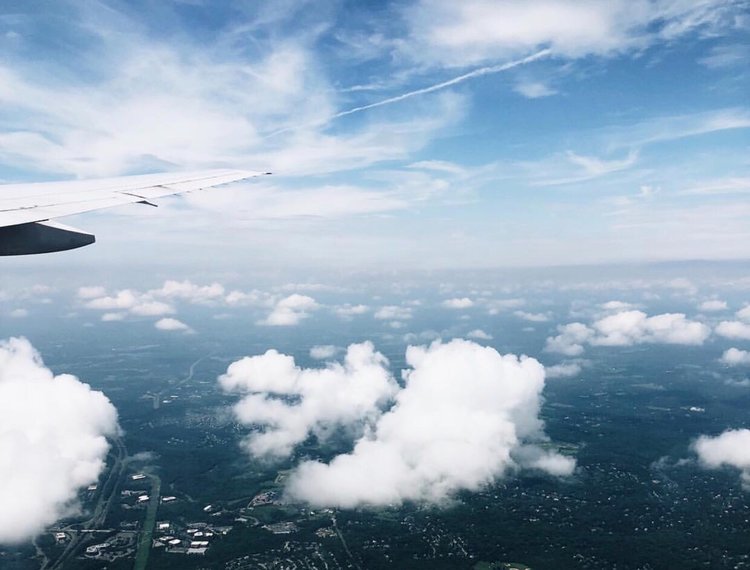
There have been a few instances in my life in which I have been jet lagged, but nothing will top The Australia Trip. I did everything you’re NOT supposed to do, which resulted in jet lag my entire trip and the remainder of the month when I got back to the U.S. I was determined to avoid jet lag during my most recent trip to Europe, and I succeeded! I knew my first week back was going to be incredibly busy at work, so I needed to be 100% on board and not distracted by something avoidable, like jet lag.
For those of you who have never been jet lagged, consider yourself lucky. The best way I can describe jet lag is like your entire system is malfunctioning… you feel so disoriented and groggy – think of how Benadryl makes you feel, but worse. Your sleep schedule is whacked out, your digestive system doesn’t know how to work, and everything just feels… off. Here are some tips to hopefully avoid ever experiencing this:
1. DO NOT SLEEP WHEN YOU ARRIVE TO YOUR DESTINATION.
This is the absolute #1 rule of avoiding jet lag. Believe me, I know, the first thing you want to do after a long day of traveling is refuel, but I’m telling you – you will regret it. I was warned not to do it in Australia, but did so anyway, and I literally could not stop sleeping. I went from being on U.S. time to inadvertantly creating my own schedule – because the hours I was asleep did not even match Australia’s time. It was a huge mess. The first day it’s hard to fight it, but the fatigue will allow you to fall asleep faster when it comes to adjusting to your destination’s time zone. I highly recommend avoiding naps, as well.
2. Fake it until you make it.
A lot of people, including myself, have this fixation on seeing what time it would be in the U.S. versus your current destination. This is definitely a curiosity thing, but psychologically, it can mess with you. A lot of people argue that jet lag is in your head (which I do not fully agree with), and I think this is what they are referring to. While comparing the time zones is useful for communication back home, it can mess with your sleep schedule – in your head it is 8 pm in London, but back home it is 1 am – and that thought alone can make you subconsciously think you’re staying up much later than you normally would (for us early birds) and psych you out a little bit. Don’t pay attention to any other time zone except the current one you are in. This really made a huge difference for me the last trip.
3. Take a red-eye flight to your destination.
I did so for Europe, and it made the world of a difference. It gave us the entire day to settle in and explore, and it allowed us to easily sleep on the plane because it was so dark. When we stepped off the plane, we had already slept “for the night”, so we were automatically aligned to the Europe time zone in terms of “waking up” on London time. It was about 11 am when we landed, and we had taken the flight at 10 pm, so it felt like a lot less time was wasted on traveling.
4. Stay moving.
We did a lot, and I mean A L O T, of walking throughout our time in London and Dublin. This helped us maintain stamina through the day and also allowed us to sleep better at night, because we were exhausted by the end of our days. We were also in the sun a lot, which I’ve heard helps a ton with jet lag – something to do with your circadian rhythm. It’s also a great way to see the country you are in, rather than laze around in your Airbnb or hotel room.
5. Hydrate, hydrate, hydrate.
As we all know, water is the cure-all for anything and everything. I tend to avoid drinking a ton of water on planes, given I always prefer the window seat – and a long flight with strangers and a window seat is my worst nightmare, due to bothering/waking people up so I can go to the bathroom. However, I was next to my sisters, so it wasn’t an issue for this flight. I hydrated much more than I normally would – and it made a huge difference in how I felt getting off of the plane this time around versus other flights. And… water is free!
If I find anything else that helps out, I will be sure to update this list as I continue to travel. For now, I can confidently say that these tips will be sure to alleviate (if not prevent!) jet lag on your next trip. Bon voyage!
Truly,
Taylor
